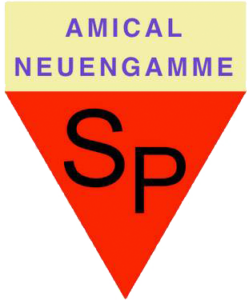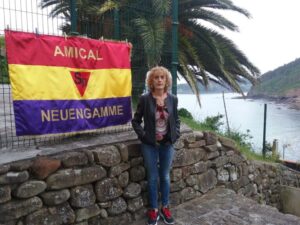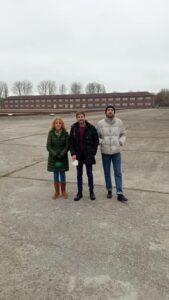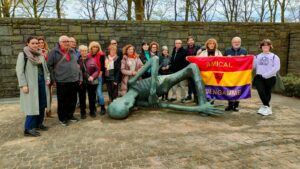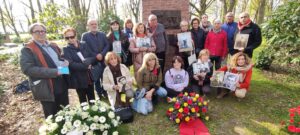Remembrance
With the aim of studying the history, promoting public knowledge and honouring the memory of the Spaniards interned in the Neuengamme concentration camp during the Second World War, a group of relatives of those victims of Nazism created the association Amical de Neuengamme in December 2019.
Around 750 Spaniards were deported to Neuengamme, the largest concentration camp in northern Germany, located on the outskirts of Hamburg. The vast majority were exiles from the Civil War who were in France and were detained because they were considered political enemies of National Socialism.
The Amical de Neuengamme was born with the same objectives as another association of the same name created by Spanish exiles in France, whose first president was the Catalan Ernest Baulo, and which became extinct around the year 2000. The descendants and relatives of the deportees are once again raising the flag of the Amical de Neuengamme to honour them.
We currently have members from all over Spain: Asturias, the Basque Country, Castile-La Mancha, Madrid, Andalusia, Murcia and Catalonia. We also have some members in France.
Activities
Our main activities are the following:
- We have sent a request to the Secretary of Democratic Memory, Mr. Fernando Martínez López, so that the Spanish State can collaborate with the international archive of Bad-Arolsen and Spain can have a digital copy of these archives so that family members, researchers and historians can consult the data of our deportees.
- We have recently participated through a representative of the Amical Español , together with other associations of deportees, in the Stolen Memory exhibition held at the Exile Museum of La Junquera (MUME) . Many of our associates contributed with objects from their families who were deported to Neuengamme.
- We have opened a research project on our deportees in which we intend to make a list of all the people deported to the camp of Neuengamme belonging to our country.
To get a complete list is an obligation of our society. We also ask for as much documentation as possible from each person, going to civil registers, town halls, Spanish, French and German archives …
With this we want to reconstruct their stories one by one, together with their families or individually in case we could not locate. Have these stories published in communication so that they are part of the learning of our society.
- We have our own website on which we attend to provide all the information we collect, so that family members, researchers, historians and our students can access and learn about this part of their past and our history.
- Another project is the publication of a book in which all the biographies of our deportees to the Neuengamme camp are compiled. Their stories are our memory and should not be forgotten.
- Dissemination is one of the main objectives of the project, so explanatory talks will be organised in schools and other places where family members, historians and experts in the field can provide the knowledge that must be shared.
- We will also record the testimonies of the families, which will then be used in a pedagogical way in the talks. Many of the families feel that their stories have not been heard, their suffering has not been repaired.
Reparation for all these families comes late, but that is also why we have created this project. Recognition from the institutions and recognition from society is still pending.

